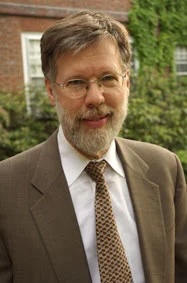Frederick R. Bieber
Associate Professor of Pathology, Harvard Medical School

Frederick R. Bieber serves as a medical geneticist at Brigham and Women’s Hospital and as an associate professor of pathology at Harvard Medical School (HMS). He lectures on genetics, pathology, and forensics and is a director in the Center for Advanced Molecular Diagnostics serving patients in the Partners Healthcare System.
Bieber has taught courses continuously at the Harvard Extension School for over three decades. Bieber’s research focuses on the forensic aspects of DNA-based human identification, leading to service as an expert in state, federal, and military civil and criminal investigations. As a commissioned officer in the US Army Reserve, he served on active duty at the US Army Criminal Investigation Laboratory and the Armed Forces DNA Identification Laboratory (AFDIL).
Bieber served on the World Trade Center Kinship and Data Analysis Panel, working with the New York City Office of the Chief Medical Examiner in the DNA-based identification of victims of the September 11th attack on the World Trade Center twin towers, and as a member of the Hurricane Victim DNA Identification Expert Group, assisting the Louisiana State Police in the identification of victims of Hurricanes Katrina and Rita.
Bieber is an appointed member of the National DNA Databank of Canada Advisory Committee, the DNA Subcommittee of the New York State Forensic Commission, and served as a member of numerous state and federal forensic advisory boards, including the FBI DNA Advisory Board, and the Scientific Advisory Board of the Virginia Department of Public Safety. He served as senior advisor in forensic science to the Executive Office of Public Safety in Massachusetts, and to the Commissioner of the Connecticut Department of Environmental Services and Public Protection.
In 2014, Bieber was appointed to the first-ever US National Commission on Forensic Science. The commission makes recommendations for improvements to the use of forensic science in the US justice system.